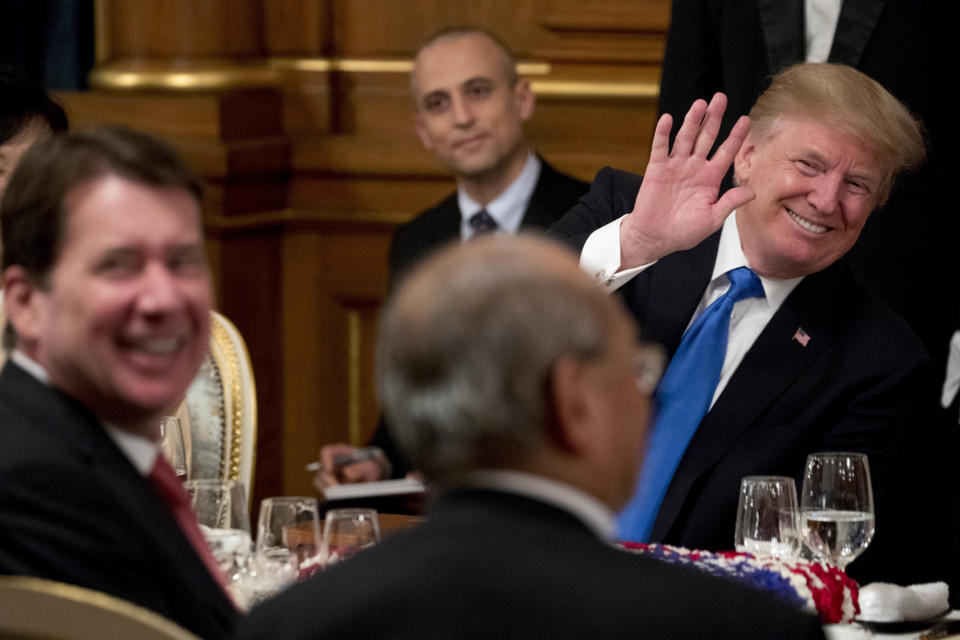Trump's post-election stock market rally is the 4th-best since 1936
Since President Donald Trump was elected in November 2016, the stock market has been on a tear.
Over the weekend, Trump — who has repeatedly boasted about the stock market’s run during his time in office — said in Japan that “the reason [the U.S.] stock market has been so successful is because of me,” according to ABC’s Jonathan Karl.

And while the more than 20% rally we’ve seen in the S&P 500 and the 30% rise in the Dow have sent markets to record highs, the market’s post-election performance isn’t the best among modern presidents.
According to data from Goldman Sachs, Trump’s post-election stock market jump is the fourth-largest since 1936. Trump trails Presidents George H.W. Bush, John F. Kennedy, and Bill Clinton in terms of stock market performance following election day.
Clinton’s 1996 post-election rally, which saw the S&P 500 rally almost 30% in the 12 months following the election and over 50% in the 24 months following his win, is by far the best stock market performance any modern president has enjoyed after their election win.

The extent of Trump’s overall impact on the stock market, of course, is open to debate. Some investors have argued that the stock market’s rally this year has been about the hopes for tax reform that would put billions of dollars on to the bottom lines of American corporations.
But as we’ve noted, data from Goldman shows that stocks which would be set to benefit the most from tax changes have underperformed the market this year, meaning that investors aren’t putting much faith in a tax bill getting through. Threats from Treasury Secretary Steven Mnuchin that the stock market would tank if tax reform weren’t passed, then, seem to ring a bit hollow.
Goldman notes, however, that one clear area where Trump’s election has improved stock market fortunes is for companies exposed to small- and medium-sized businesses. This basket of stocks derives 71% of its revenues from small- and medium-sized customers — that is, businesses with 500 or fewer employees.
“Small business owners have been thrilled at the prospect of deregulation under the Trump administration,” Goldman notes.
“Following the election, the NFIB Small Business Optimism Index leaped to the highest level in more than 12 years. The share prices of firms deriving revenues from small businesses have rallied by 38% since the election while the Russell 2000 small-cap index has matched the performance of large caps.”

So while some of Trump’s boasting about the stock market may be derided by critics as mere Trumpian bluster, there is no doubt that his election has excited many areas of the American business community — and led to positive outcomes for shareholders.
—
Myles Udland is a writer at Yahoo Finance. Follow him on Twitter @MylesUdland
Read more from Myles here:


